Ukraine orders drone unit to leave Bakhmut, commander says
From CNN’s Vasco Cotovio and Olga Voitovych
A Ukrainian drone reconnaissance unit based in Bakhmut has been ordered to leave the besieged eastern city, its commander said in a video posted on Telegram on Friday.
Russian forces have advanced on Bakhmut over the past few days after months of intense shelling and fighting around the battered city, which sits toward the northeast of the Donetsk region and has been a target for Moscow for months.
“We are following the order,” Brovdi said, adding he did not know why the unit was being moved.
Ukraine war sends message to "aggressors everywhere," says Blinken at Quad meeting
From CNN's Manveena Suri in New Delhi
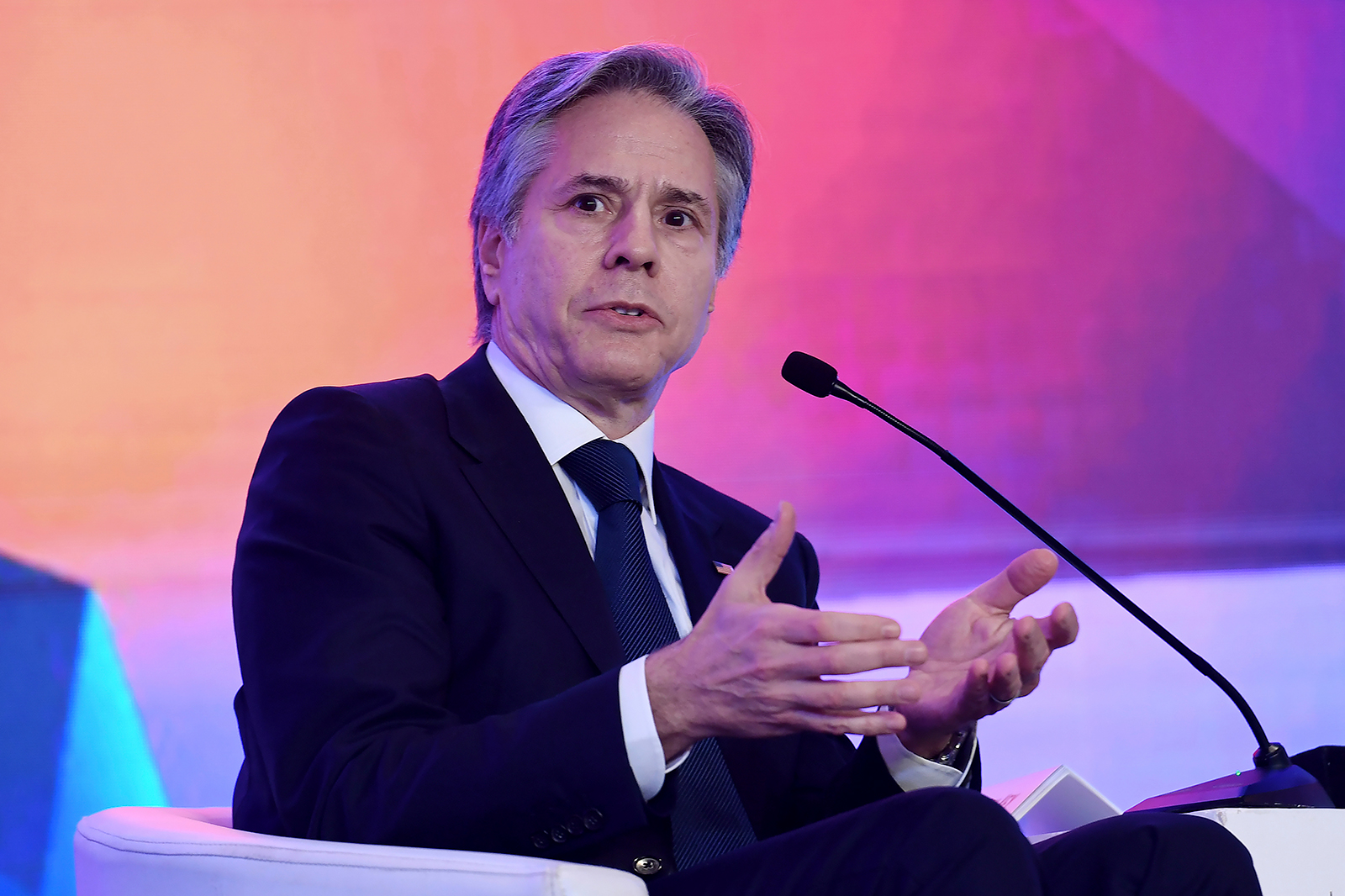 Antony Blinken speaks during a Quad ministers' panel at the Taj Palace Hotel in New Delhi on Friday, March 3. (Olivier Douliery/AP)
Antony Blinken speaks during a Quad ministers' panel at the Taj Palace Hotel in New Delhi on Friday, March 3. (Olivier Douliery/AP)Moscow’s invasion of Ukraine, and the support flooding in to Kyiv from countries across the world, sends a powerful message to “would be aggressors everywhere,” US Secretary of State Antony Blinken said Friday during a meeting on the sidelines of the G20 summit.
“Part of the reason countries way beyond Europe are also so focused on this and are working to support Ukraine and deal with the challenge is because they know it could have effect here,” Blinken said in New Delhi.
“If we allow, with impunity, Russia to do what it’s doing in Ukraine, then that’s a message to would-be aggressors everywhere that they may be able to get away with it too.”
The comments came as Blinken met with his counterparts from India, Japan and Australia — a grouping known as the “Quad,” or Quadrilateral Security Dialogue.
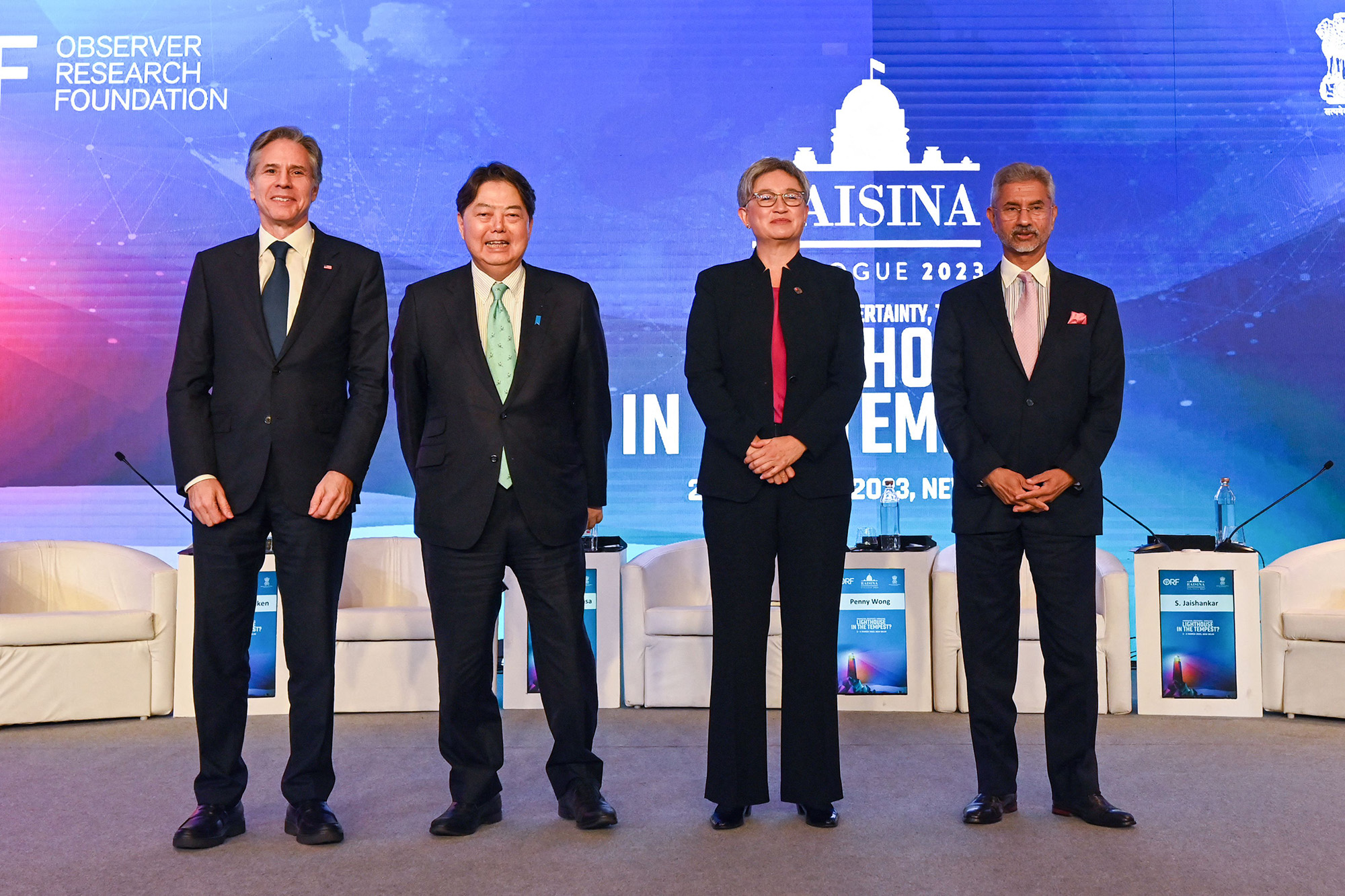 Left to right - US Secretary of State Antony Blinken, Japan Foreign Minister Yoshimasa Hayashi, Australian Foreign Minister Penny Wong and Indian Foreign Minister Subrahmanyam Jaishankar pose for a photograph after the Indo-Pacific Quad Foreign Ministers panel discussion in New Delhi, India, on March 3. (Money Sharma/AFP/Getty Images)
Left to right - US Secretary of State Antony Blinken, Japan Foreign Minister Yoshimasa Hayashi, Australian Foreign Minister Penny Wong and Indian Foreign Minister Subrahmanyam Jaishankar pose for a photograph after the Indo-Pacific Quad Foreign Ministers panel discussion in New Delhi, India, on March 3. (Money Sharma/AFP/Getty Images)The Quad is an informal group focused on security that dates back to the early 2000s, though it has become more active in recent years as part of efforts to counter China’s reach and territorial claims in the Indo-Pacific.
Blinken added that the challenges faced by people around the world cannot be dealt with by “any one country acting alone.”
Though he didn’t specify any “would-be aggressors,” he made several veiled references, saying the Quad is working on increasing countries’ maritime domain awareness — meaning greater surveillance on things happening in their waters — and tamping down on illegal fishing.
Read more here.
Blinken never raised the case of detained US citizen, Russian Foreign Ministry claims
From CNN's Fred Pleitgen and Olga Voitovych
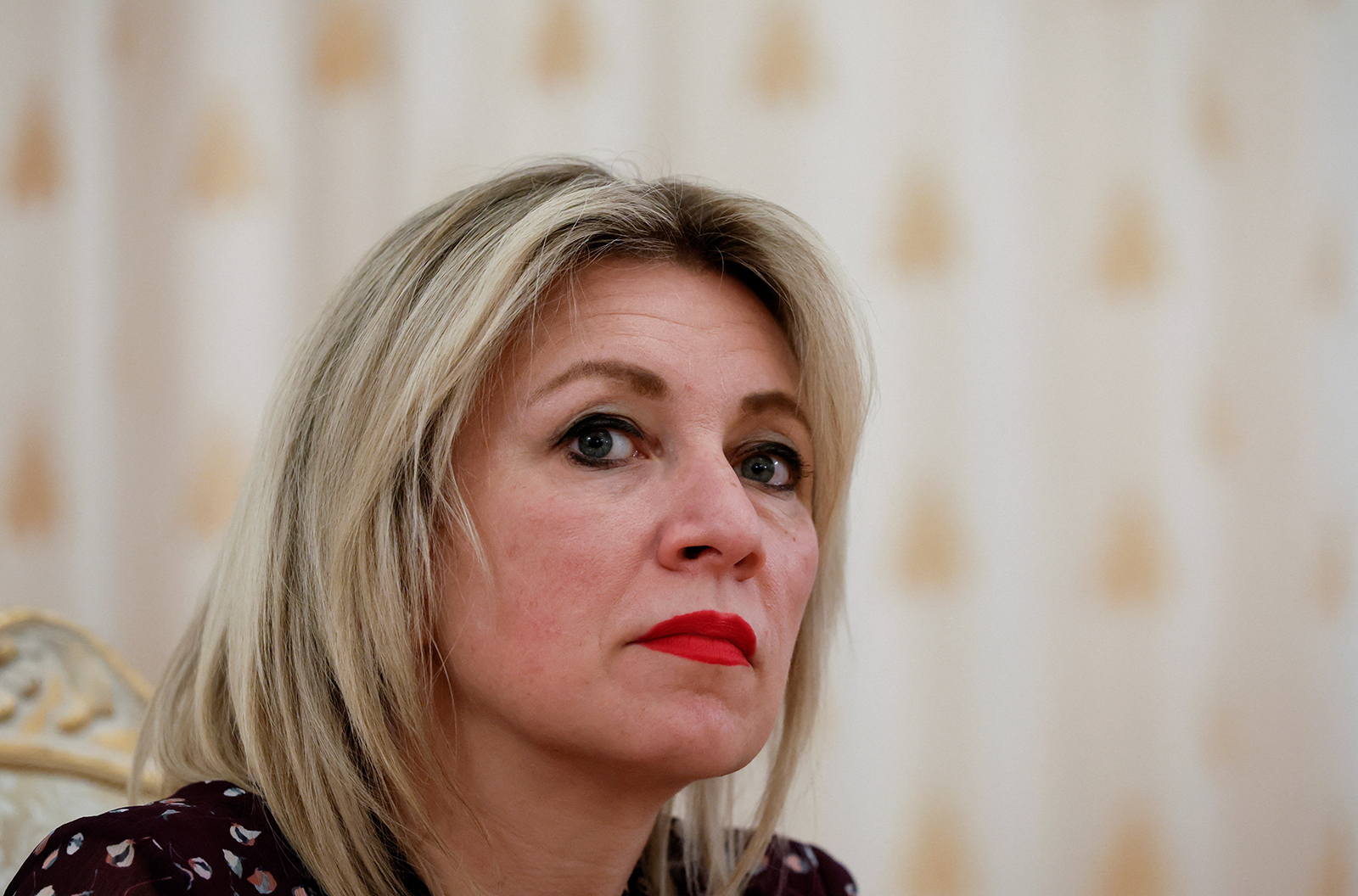 Maria Zakharova attends a meeting in Moscow on February 15. (Shamil Zhumatov/Reuters)
Maria Zakharova attends a meeting in Moscow on February 15. (Shamil Zhumatov/Reuters)A Russian Foreign Ministry spokeswoman on Friday claimed that Antony Blinken did not raise the issue of a US citizen detained in Russia during a meeting with the Kremlin's foreign minister — directly contradicting earlier comments by the US Secretary of State.
Blinken said Thursday that he pressed his Russian counterpart Sergey Lavrov on Paul Whelan's detention and a US offer to free him during a meeting on the sidelines of the G20 foreign ministers' meeting in New Delhi.
But on Friday, Russian Foreign Ministry spokeswoman Maria Zakharova claimed: “It turned out that the US Secretary of State did not even mention it," referring to Whelan's case.
Some context: Whelan, a former US Marine, was detained in Moscow in December 2018 by Russian authorities who alleged he was involved in an intelligence operation. He was convicted and sentenced in June 2020 to 16 years in prison in a trial US officials denounced as unfair.
Russian forces blow up vital bridge to Bakhmut, Ukrainian police say
From CNN's Seb Shukla and Kosta Hak
Russian forces blew up a key bridge linking the besieged city of Bakhmut to the nearby village of Khromove overnight, police in the Donetsk region said.
Police in the city of Konstantinyvka told CNN they hope to repair the bridge in the coming days since it's a vital artery for the extraction of civilians and the movement of supplies such as ammunition.
The bridge is also the last main supply route from Bakhmut to the city of Chasiv Yar.
The military can still access the city through dirt tracks and fields, police said.
A mandatory evacuation order is in place in the Donetsk region and about 5,000 people remain in Bakhmut, according to Ukrainian officials.
Russian forces are advancing on Bakhmut, but the Ukrainian military says it is holding its ground in the battle for the eastern city and not planning to withdraw.
Russia and China reaffirm partnership after foreign ministers meet on G20 sidelines
From CNN's Wayne Chang and Josh Pennington
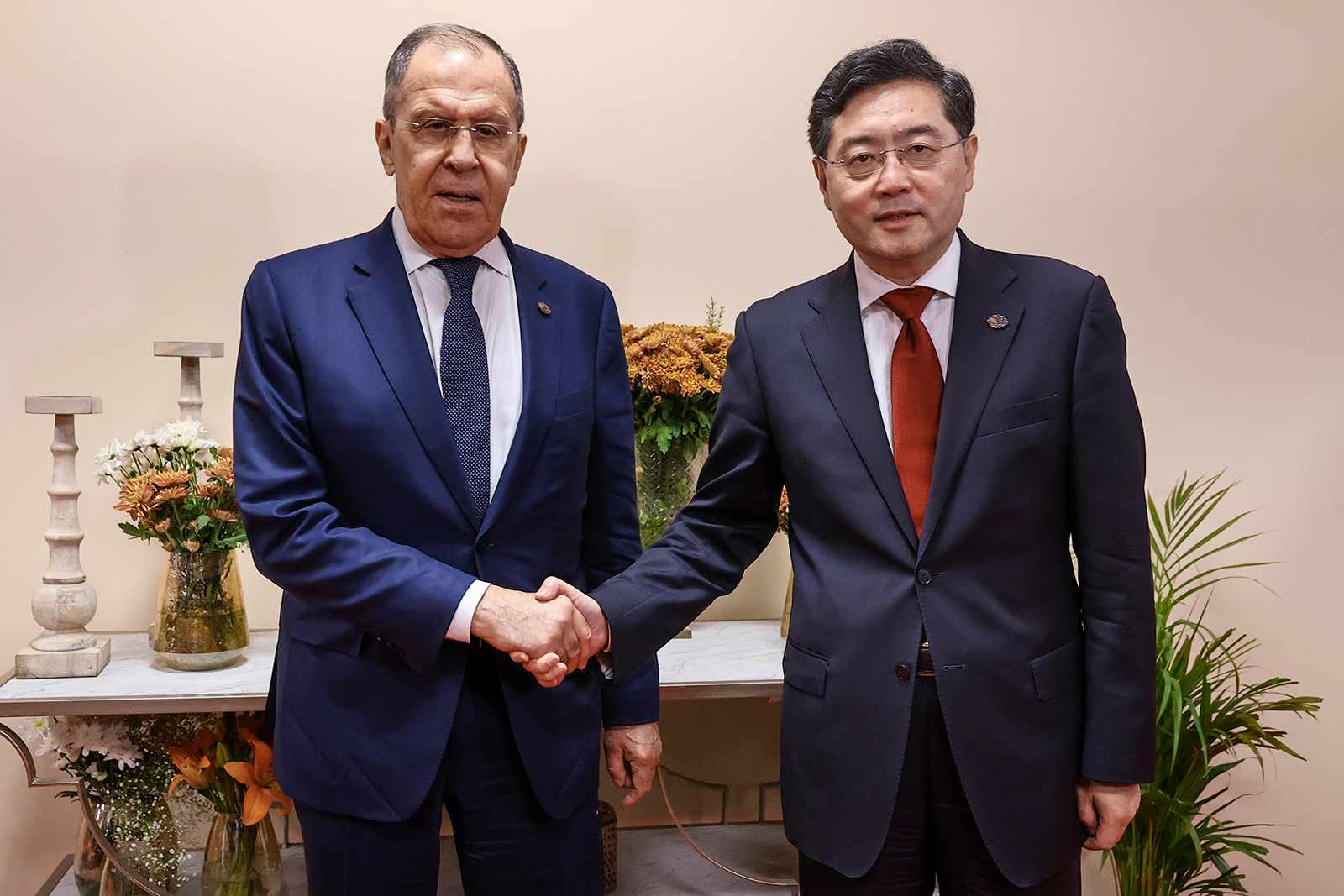 Russian Foreign Minister Sergey Lavrov, left, and Chinese Foreign Minister Qin Gang pose for photo on the sideline of G20 foreign minister's meeting in New Delhi, India, on Thursday, March 2. (Russian Foreign Ministry Press Service/AP)
Russian Foreign Minister Sergey Lavrov, left, and Chinese Foreign Minister Qin Gang pose for photo on the sideline of G20 foreign minister's meeting in New Delhi, India, on Thursday, March 2. (Russian Foreign Ministry Press Service/AP)Russia and China have once again reiterated their cooperation following a meeting of the two countries' foreign ministers in India amid rising geopolitical tensions over Moscow's war in Ukraine.
Russian Foreign Minister Sergey Lavrov met his Chinese counterpart Qin Gang on Thursday on the sidelines of the G20 foreign ministers' meeting in New Delhi.
In statement released after the meeting, Russia's Foreign Ministry said "there was a unanimous rejection by the two of attempts to interfere in the internal affairs of other countries, or imposing unilateral approaches using blackmail and threats, or to oppose the democratization of international relations," in an apparent reference to the United States and its NATO allies,
According to a Chinese Foreign Ministry readout, Qin said Beijing supports any efforts conducive to peace in Ukraine and will continue to play a constructive role in that regard.
Both sides affirmed cooperation and coordination and enhanced strategic communication, according to the Chinese and Russian readouts.
Some context: Tensions between the United States and China have intensified in recent weeks, including over concerns from Washington that Beijing is considering sending lethal aid to the Kremlin’s struggling war effort. Beijing has denied those claims and instead sought to portray itself as an impartial agent of peace — in contrast to the US, which it has accused of “adding fuel to the fire” in the conflict and damaging the global economy with sanctions targeting Russia.
US will announce more military aid for Ukraine on Friday, White House says
From CNN's Sam Fossum
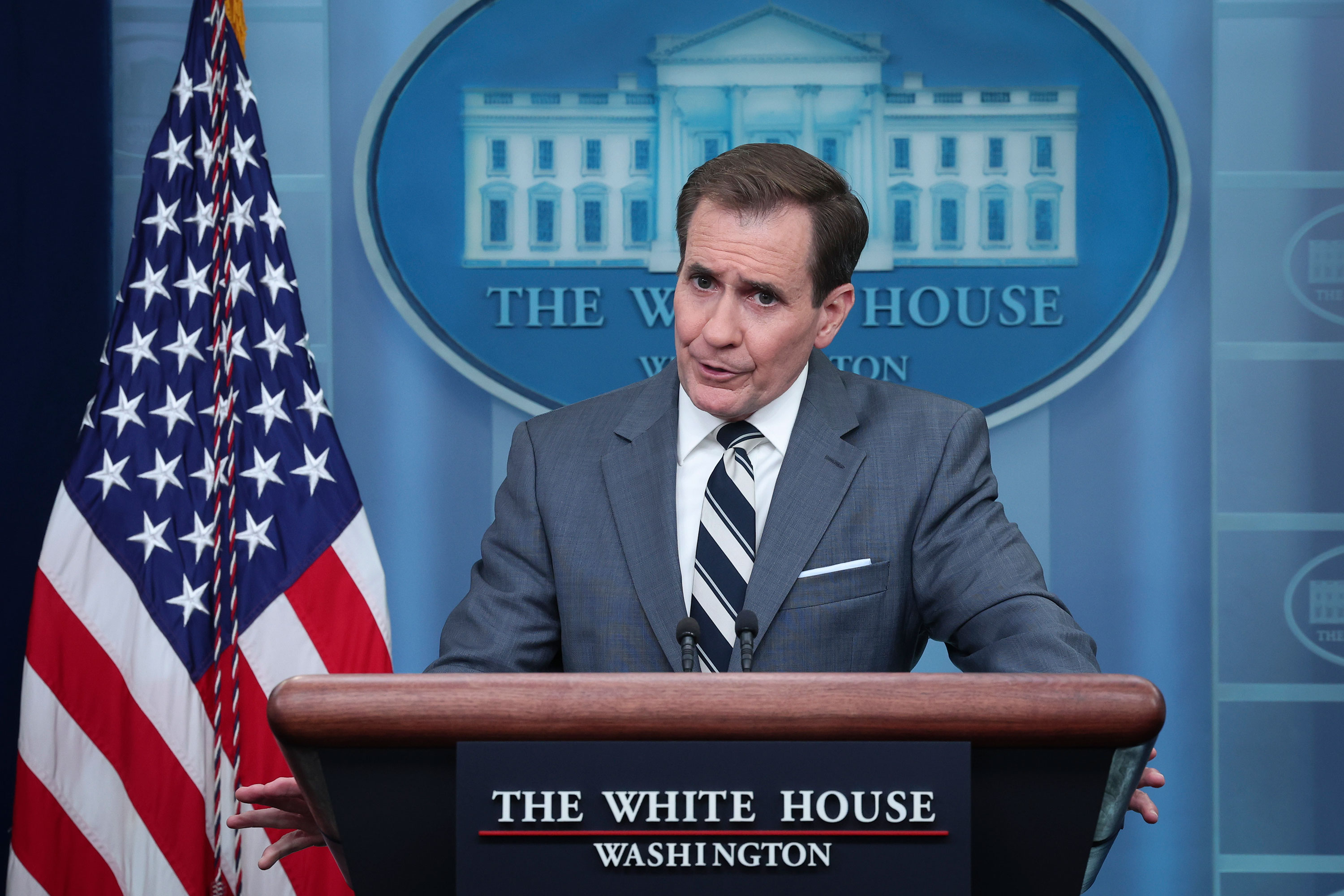 National Security Council strategic communications coordinator John Kirby answers questions during the daily press briefing at the White House on March 2 in Washington, DC. (Win McNamee/Getty Images)
National Security Council strategic communications coordinator John Kirby answers questions during the daily press briefing at the White House on March 2 in Washington, DC. (Win McNamee/Getty Images)The White House will announce another round of military assistance for Ukraine on Friday, which is the same day that German Chancellor Olaf Scholz will meet with President Joe Biden, according to National Security Council strategic communications coordinator John Kirby.
Kirby declined to provide a dollar figure for Friday's announcement. He added that Biden and Scholz will discuss "additional support for Ukraine going forward."
The announcement comes just one week after the Biden administration announced another $2 billion in Ukraine Security Assistance Initiative funds. That funding was for purchases and new contracts for equipment for Ukraine, including:
- HIMARS rockets
- 155m artillery ammunition
- Multiple types of drones (UAVS)
- Counter UAV equipment
- Mine clearing equipment
- Secure communications equipment
- Funding for training and maintenance
Russian forces lay siege to Bakhmut as Ukraine tries to repel attacks, Ukrainian military says
From CNN's Radina Gigova and Svitlana Vlasova
 Ukrainian service members prepare to shoot from a howitzer at a front line near the city of Bakhmut on March 2. (Oleksandr Ratushniak/Reuters)
Ukrainian service members prepare to shoot from a howitzer at a front line near the city of Bakhmut on March 2. (Oleksandr Ratushniak/Reuters)Russian forces continue to press their offensive in the Bakhmut area as Ukrainian forces try to repel ongoing attacks near the key eastern city and nearby areas in the Donetsk region, the Ukrainian military's General Staff said in an evening update on Thursday.
Over the past 24 hours, Russian forces launched rocket attacks on the cities of Chasiv Yar in Donetsk, located just 5 kilometers (about 3 miles) west of Bakhmut, and Zaporizhzhia, the General Staff said.
"The threat of further missile strikes remains high throughout Ukraine," the Ukrainian military said.
There were unsuccessful Russian offensive attempts in the Kupyansk and Lyman directions, it added.
In the Zaporizhzhia and Kherson directions, Russian forces continue "to try to create conditions for an offensive" and have fired artillery at more than 40 settlement areas, it said.
Ukraine also responded with 13 strikes over the past day in areas where Russia has personnel and military equipment, the General Staff said, adding that the missile and artillery units hit one Russian ammunition depot.
Putin accuses Ukraine of border attack as Kyiv dismisses Russian "provocation"
From CNN's Anna Chernova, Olga Voitovych, Vasco Cotovio, Nathan Hodge and Rob Picheta
Russian security officials claimed on Thursday that a small Ukrainian armed group had crossed the Russian border into the southern Bryansk region, allegations dismissed by Kyiv as a “classic deliberate provocation” by the Kremlin.
The Security Service of Russia (FSB) said in a statement via state-run news agency RIA Novosti on Thursday that the agency was carrying out operations to counter what it said were “armed Ukrainian nationalists who violated the state border” in the district. President Vladimir Putin later described the incident as a terrorist attack, and a local official said two civilians were killed.
CNN cannot independently verify the Russian claims, and local media have not carried any images of the supposed incidents, any type of confrontation or an alleged raid reported by Russian authorities.
US and Ukrainian officials have in the past warned that Russia has planned so-called “false flag” attacks along Russia’s border with Ukraine as a pretext for military escalation, including Russian claims ahead of last year’s full-scale invasion that Ukraine was sending “saboteurs” over the Russian border.
The Bryansk region shares a border to its south with Ukraine, and to its west with Belarus, the close Russian ally nation that helped facilitate Putin’s invasion of Ukraine last year.
Read more here.
Kremlin pre-planned and helped finance Kherson torture centers, international investigators say
From CNN's Vasco Cotovio
Standing outside a Russian detention center in Kherson, days after the southern Ukrainian city was liberated, 29-year-old Ihor shivered as he recalled what he endured inside.
“I was stabbed in the legs with a taser, they use it as a welcome. One of them asked what I’d been brought in for and another two of them started hitting me in the ribs.
“People were tortured, they were beaten with sticks in the arms and legs, cattle prods, even hooked up to batteries and electrocuted or waterboarded with water.”
Kherson was the first large city and only regional capital Russian troops were able to occupy since the start of the invasion. Moscow’s armies took over the city on March 2, 2022, and occupied it for several months before being forced to withdraw in early November, after a months-long offensive by Ukrainian forces.
The detention center Ihor was held in was part of a network of at least 20 facilities that Ukrainian and international lawyers said was part of a calculated Russian strategy to extinguish Ukrainian identity.
The investigation found that Russian forces followed a very specific blueprint in several occupied areas, with clear patterns that point to the overarching plan of Moscow’s occupation of Ukraine.
Read more here.

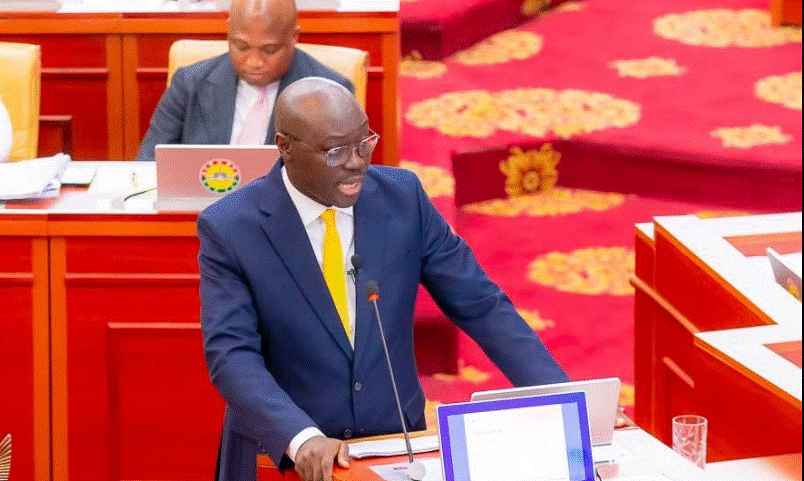



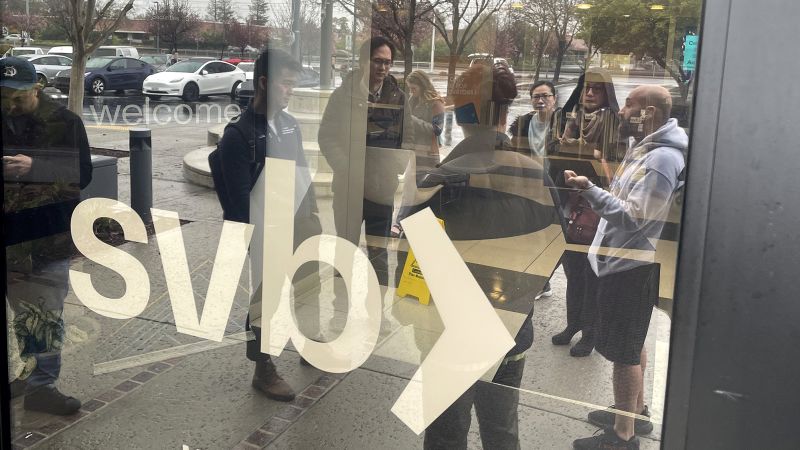

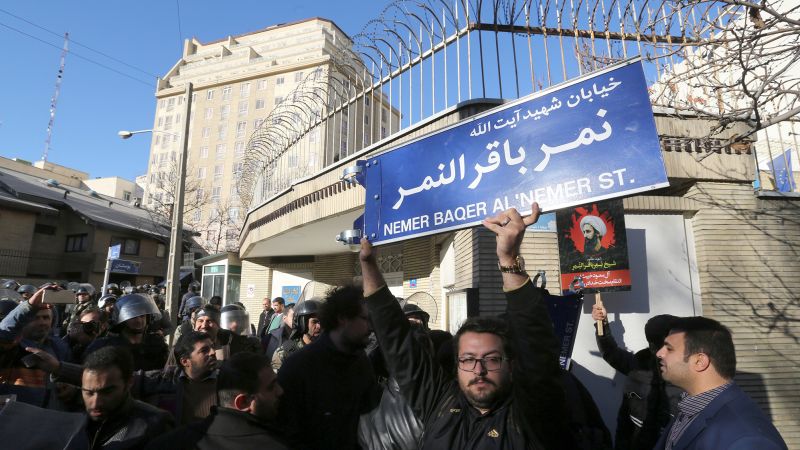
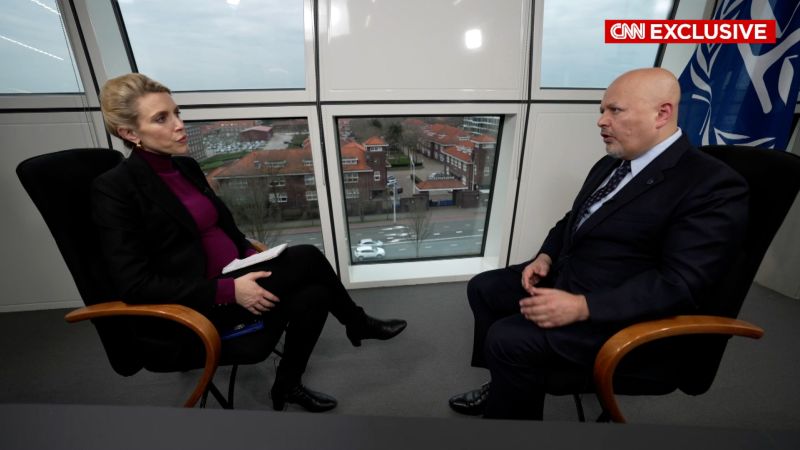
 English (US)
English (US)